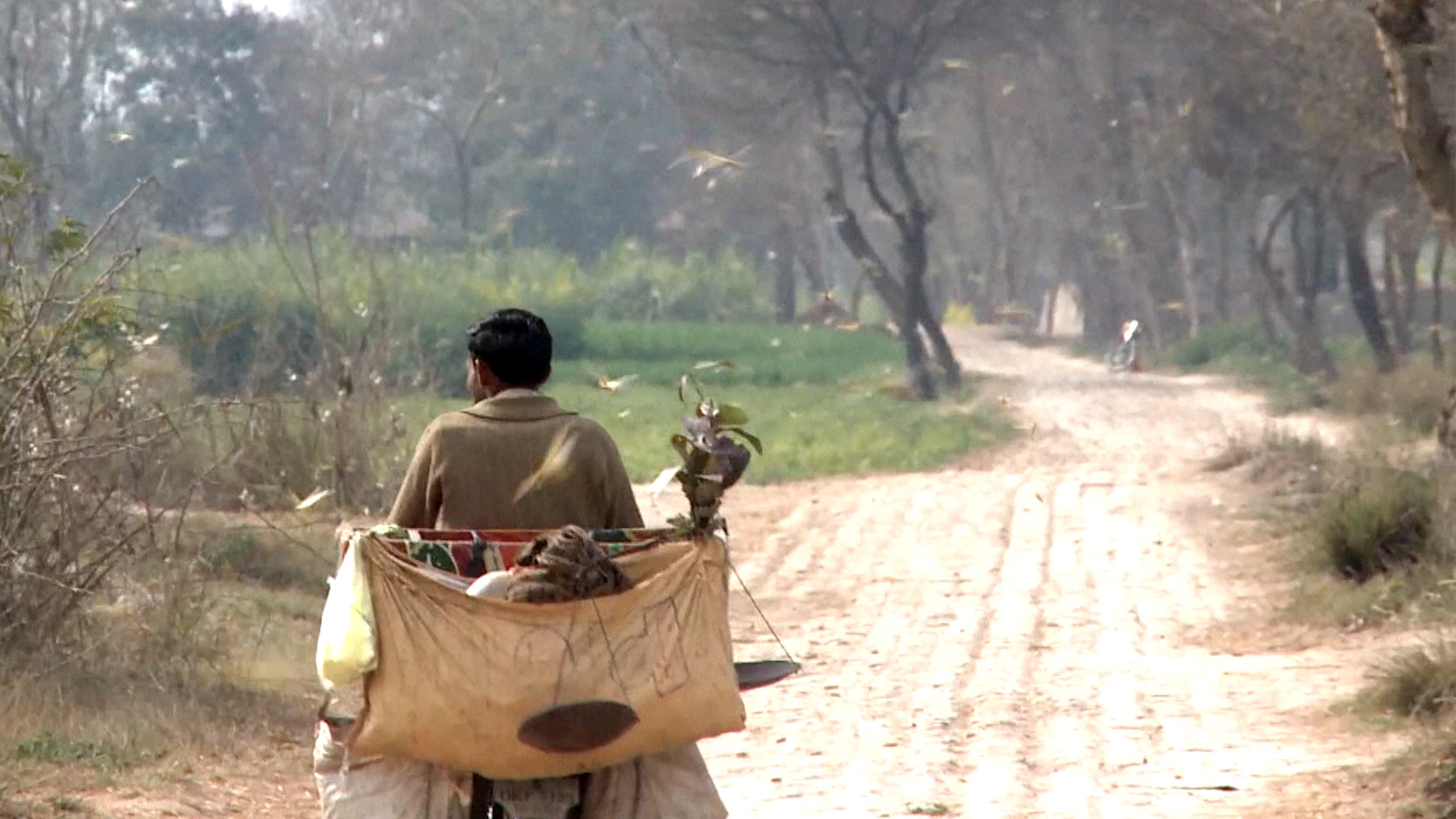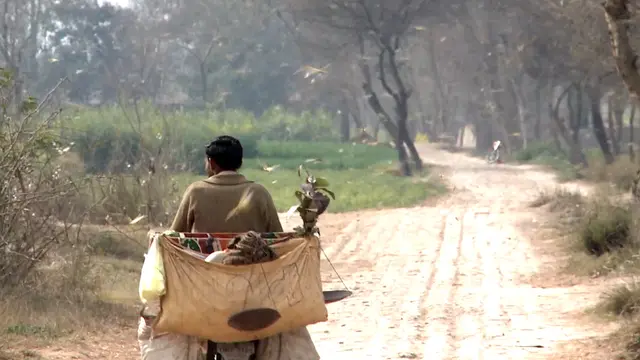00:43

Farmers in Pakistan are struggling to combat the worst locust plague in nearly three decades as insect swarms decimate entire harvests in the country's agricultural heartlands and send food prices soaring.
Heavy rains and cyclones sparked "unprecedented" breeding and the explosive growth of locust populations on the Arabian Peninsula early last year, according to the United Nations.
The insects have since fanned out and wreaked havoc on farms from East Africa to India before making their way into Pakistan from the desert on the country's southwestern border with Iran.
The crisis is so severe that the government has declared a nationwide emergency and urgently appealed for help from the international community.
Officials in southern Sindh province fear the infestation will devastate the supply of cotton, the local cash crop, ahead of its harvest in the coming months.The Sindh Chamber of Agriculture says nearly half of all crops have been destroyed near the port city of Karachi.

A team of Chinese experts on locust arrived at Karachi port, Pakistan, to hep survey the crisis, February 24, 2020. /Ministry of Agriculture and Rural Affairs of the People's Republic of China
'Combat operation'
Local authorities launched a "combat operation" to clear the area of infestation with pesticide sprays. But the process is slow and time-consuming, and by the time locusts are killed off in one field they have often already destroyed the next.
The pesticides used by officials are also dangerous for consumption, so even when the locusts are dead the remaining crops have to be discarded. Some farmers have attempted to scare off the swarms by shouting and banging pots while waiting for their fields to be sprayed.
A team of Chinese experts havearrived in Pakistan to survey the crisis, and conducted field research in Sindh, Baluchistanand Punjab provinces. In Baluchistan, the experts took a helicopter to Tobuk desert in Darbantin to collect locust samples on site and exchange locust control plans with local agricultural experts.
The Chinese governmentcould also offer aerial spraying, a much faster and more efficient method of pest control, and the UN Food and Agriculture Organization has also set up meetings between India and Pakistan to prevent the swarms from spreading.
Agriculture accounts for 20 percent of Pakistan's GDP but the sector has already struggled for years in the face of drought and dwindling water supplies. The locust swarms have affected around 30 million acres of land in the country, during the last nine months out of which only 300,000 acres were sprayed.
(With input from AFP)
 简体中文
简体中文

